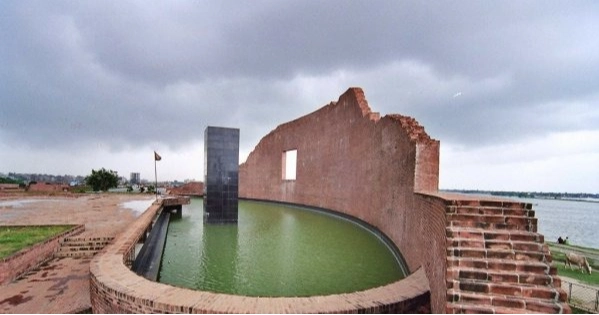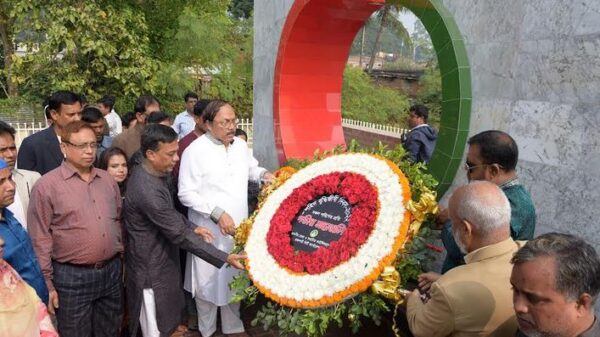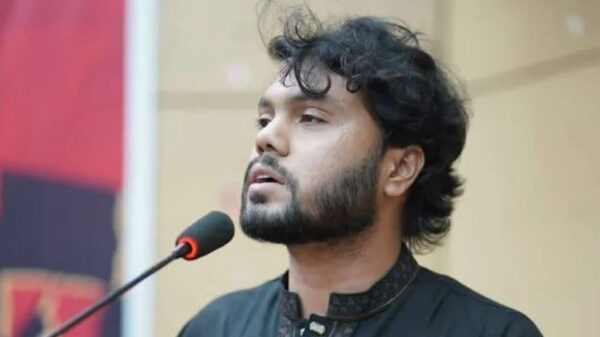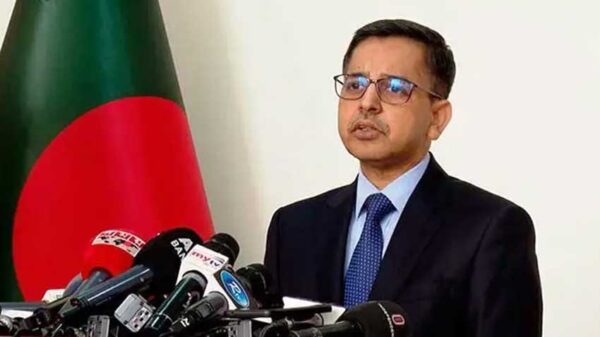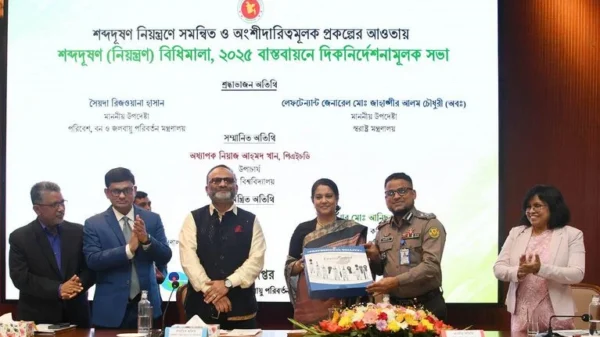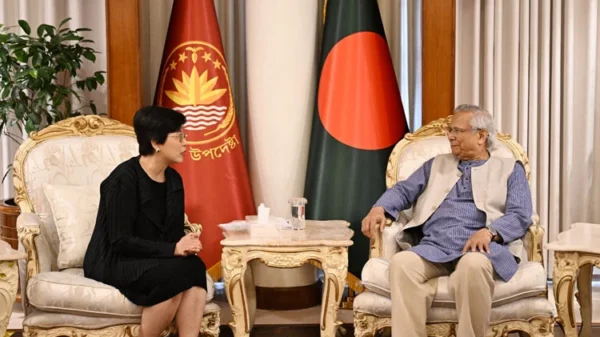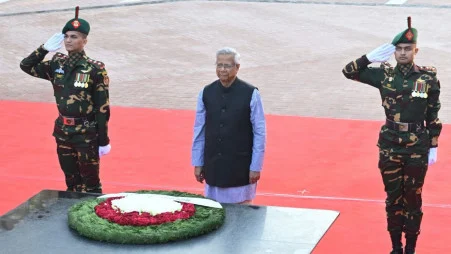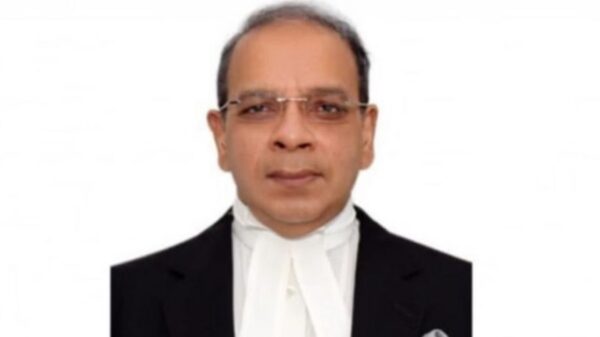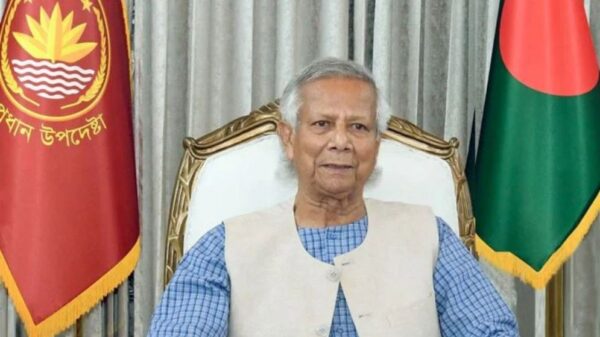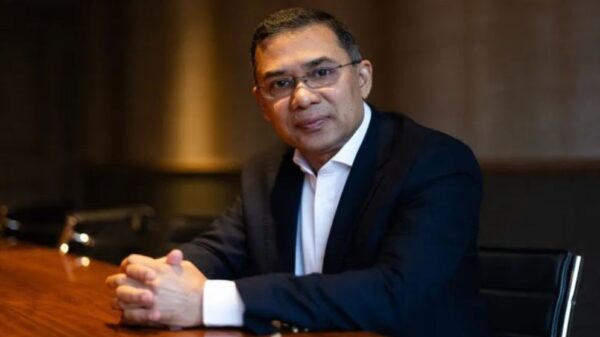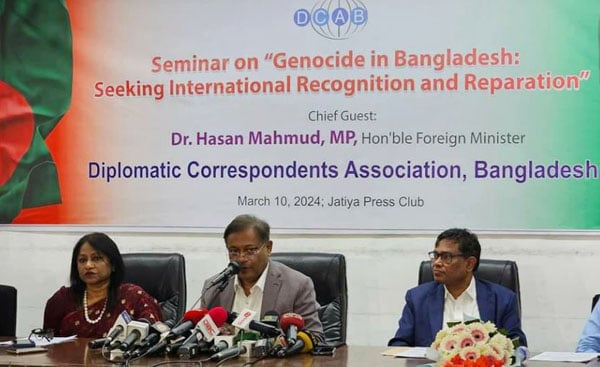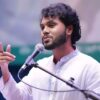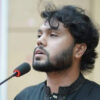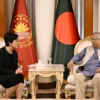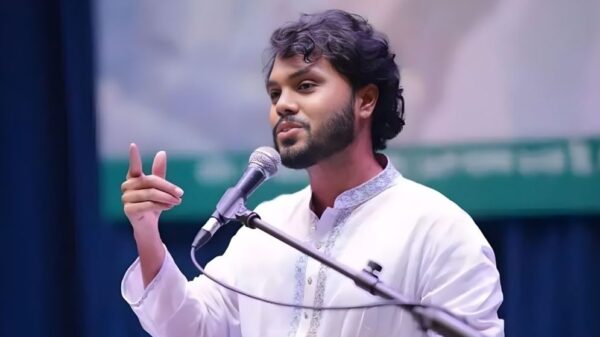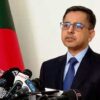Staff Reporter:
Foreign Minister Dr Hasan Mahmud yesterday said that he would form a cell at the Foreign Ministry to make coordinated efforts to get global recognition of the genocide, committed by Pakistani occupation forces during Bangladesh’s liberation war in 1971.
“I will form a cell to coordinate with all including the intellectuals who have been working on it (to get the genocide recognition),” he said.
The foreign minister was speaking at a seminar titled “1971 Bangladesh Genocide: Seeking International Recognition & Reparation” organized by Diplomatic Correspondent Association of Bangladesh (DCAB) at the National Press Club in the capital.
Hasan Mahmud said coordination is needed among the Prime Minister’s Office, the Foreign Ministry, the Liberation War Affair Ministry and members of civil society to advance Bangladesh efforts to get global reorganization of 1971’s genocide.
The foreign minister said that Bangladesh’s 1971 genocide was yet to get global recognition as, after 1975, BNP had started doing politics with the anti-liberation quarter like Jamaat-e-Islami.
“One of the main reasons for not getting the genocide reorganization is that the BNP formed its alliance with the evil forces, including Jamaat-e-Islami, which did not want Bangladesh’s liberation,” he said.
Moreover, Hasan Mahmud said, BNP had rehabilitated the anti-liberation forces that always show the tendency of denying the liberation war as well as the atrocities committed in 1971 in this country.
He said that the BNP chairperson had once refuted the fact that three million people sacrificed their lives during Bangladesh’s Liberation war. “Till date, she didn’t withdraw her statement,” he added.
“These are the reasons; otherwise, it (global reorganization) would have been achieved long ago,” said the feign minister.
Jatiya Press Club president Farida Yesmin, MP, spoke as the special guest while Dhaka University’s Center for Genocide Studies Director professor Sheikh Hafizur Rahman Karzon presented the keynote paper.
DCAB president Nurul Islam Hasib and general secretary Ashiqur Rahman Apu also spoke.
In his keynote paper, Professor Karzon said, since Bangladesh’s independence in 1971, the geopolitical situation has changed significantly and as a result, it has become more challenging, particularly for the younger generations, to disseminate information on what really happened in Bangladesh in 1971.
“This reality calls for an all-encompassing recognition grand plan,” he said adding that it needs to be formulated in a participatory way under the leadership of the relevant government body.
He said that both short and long-term advocacy activities should be listed and be prioritised, incorpo-rated in the grand plan and then executed as designed.


